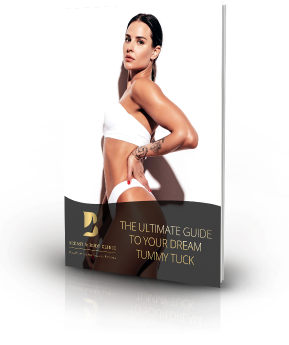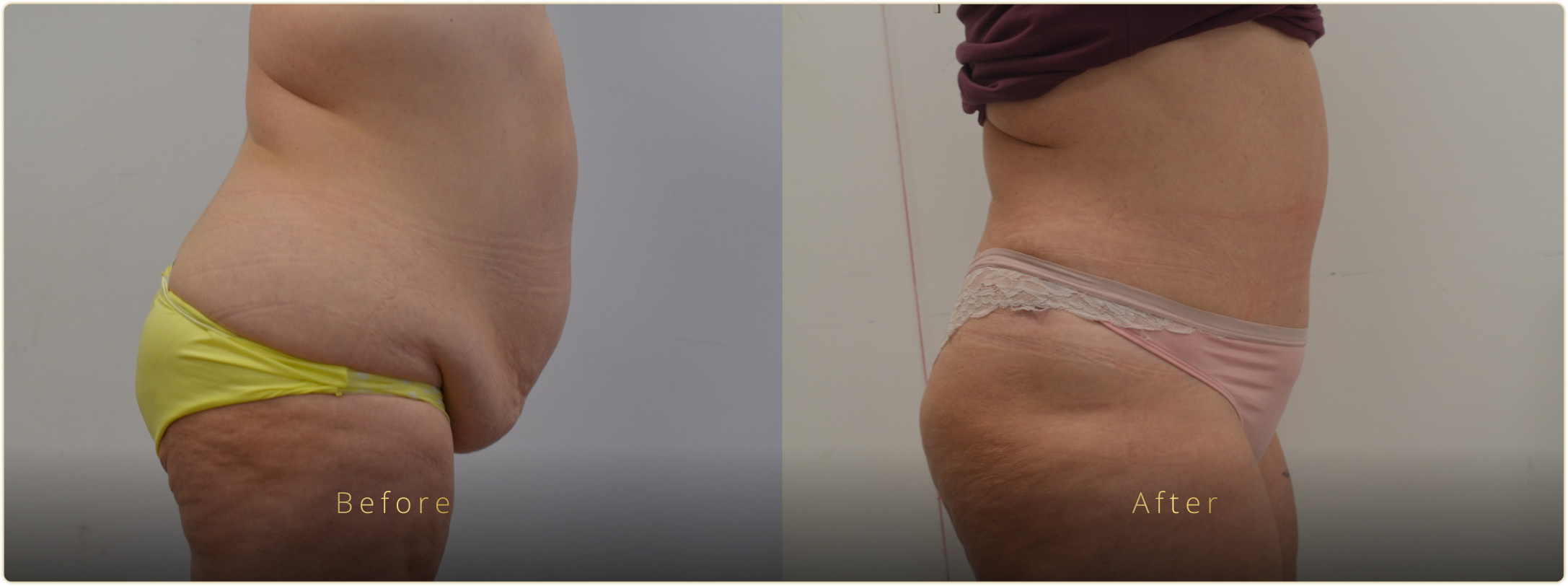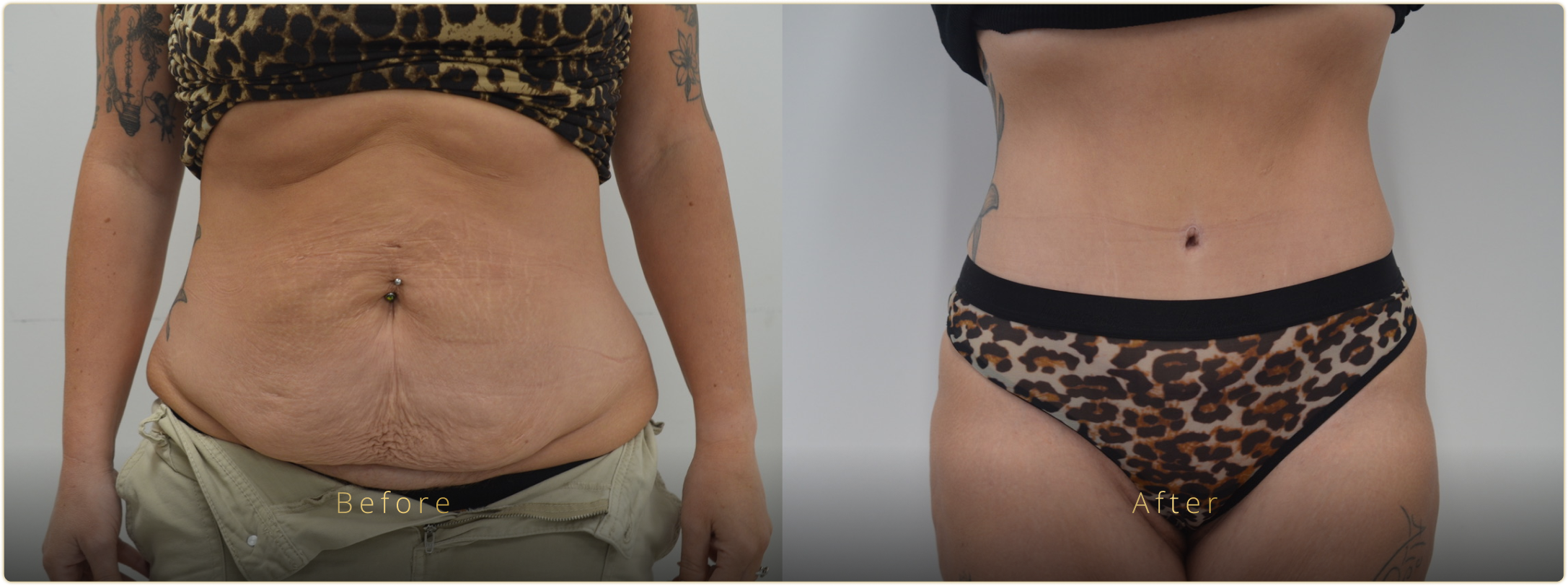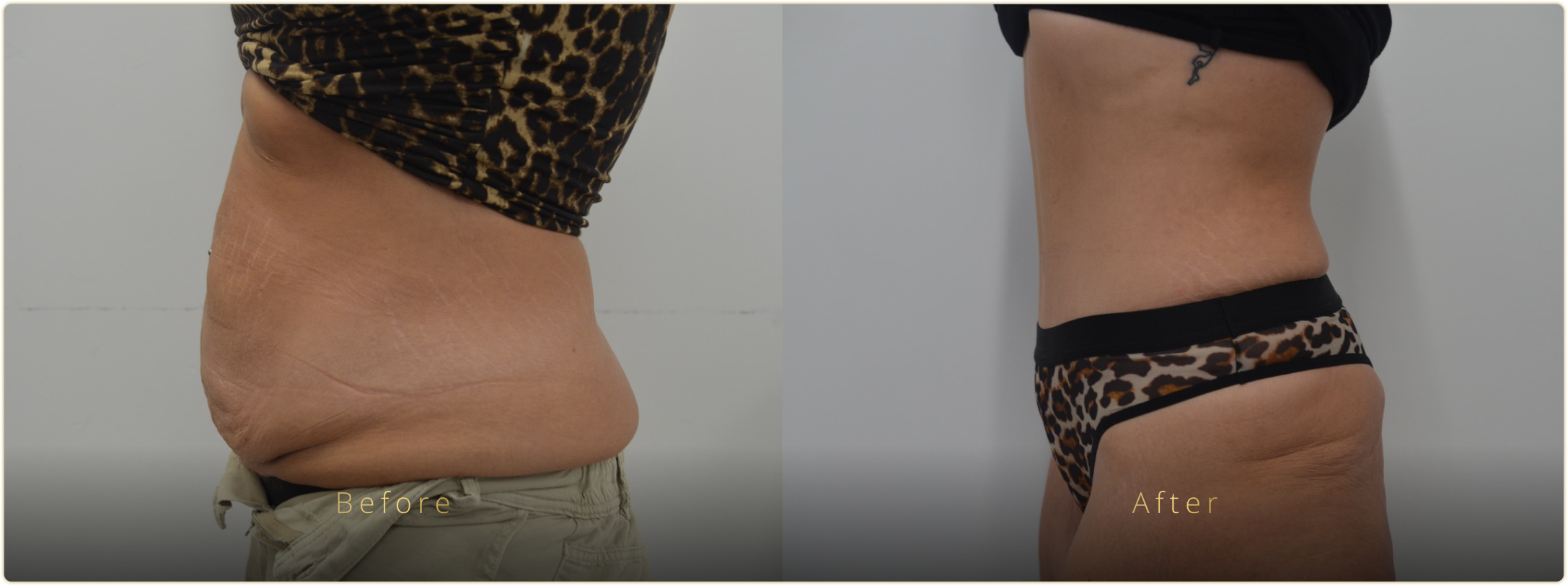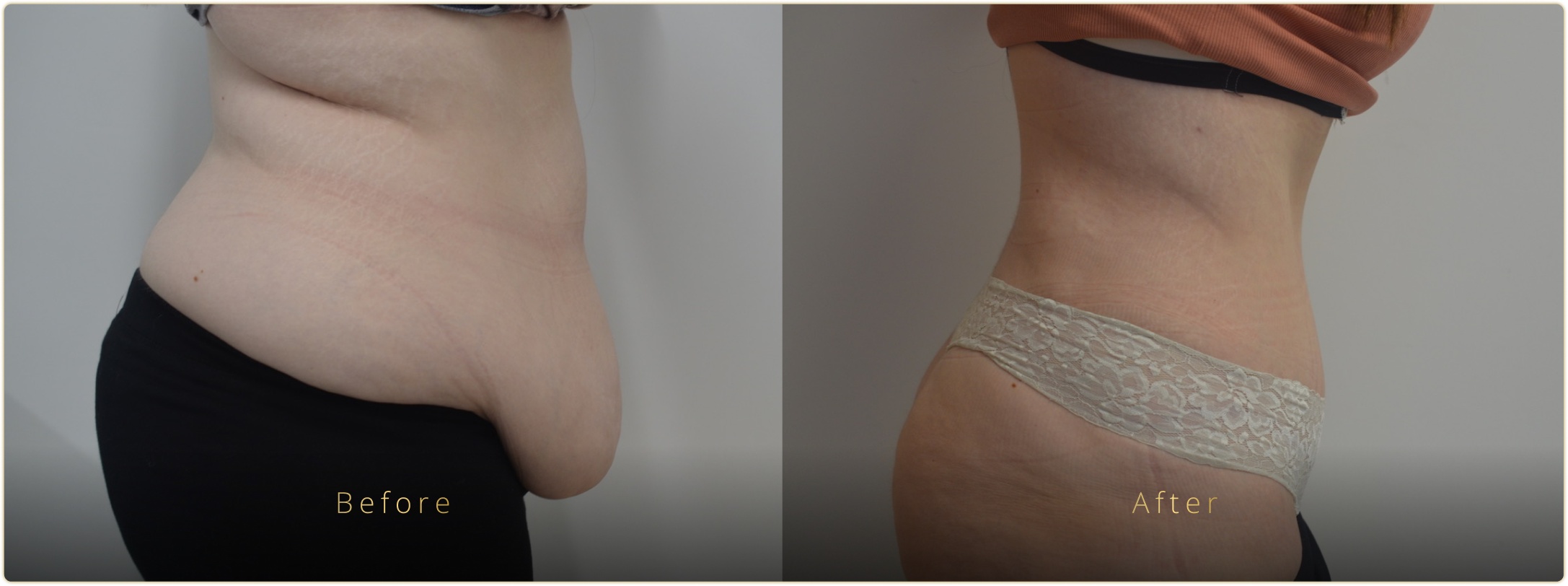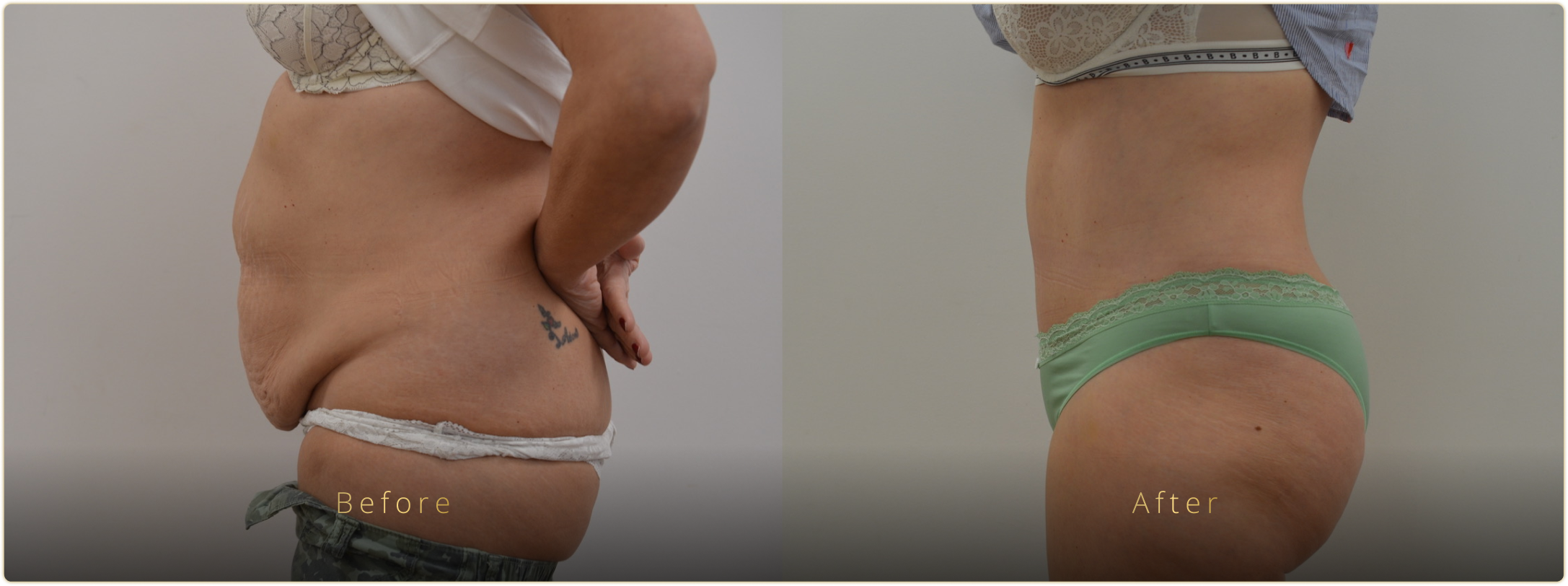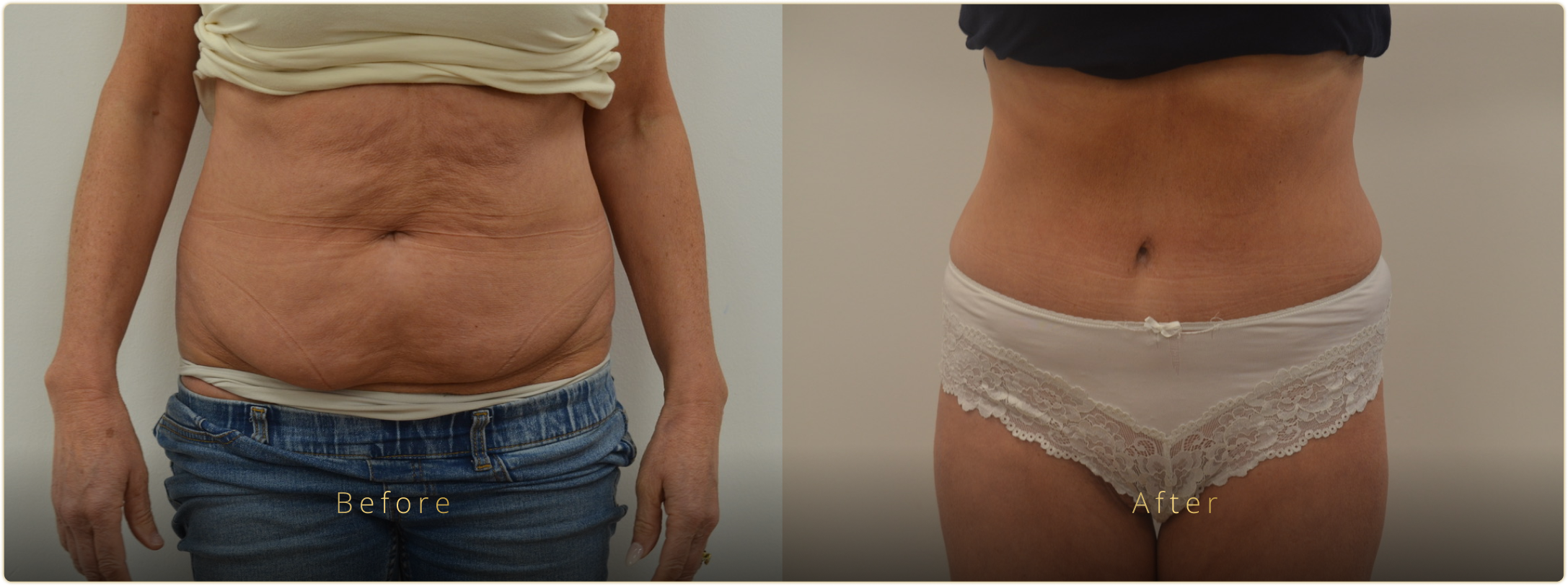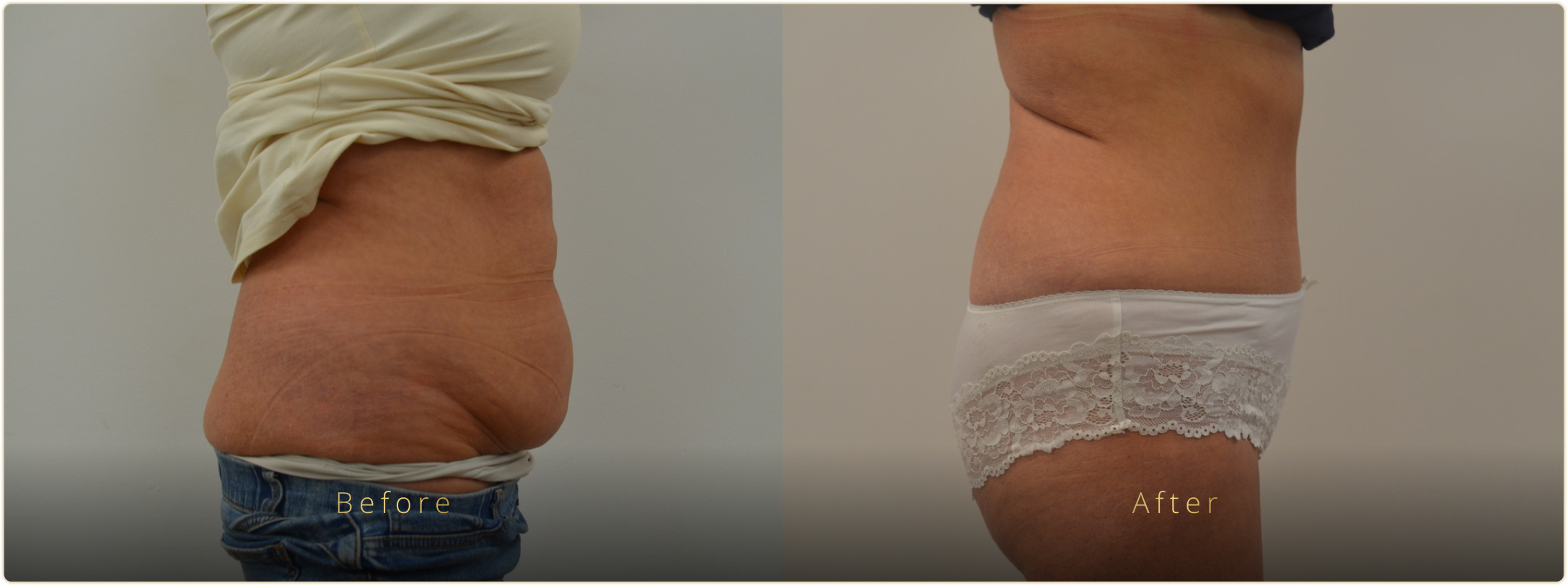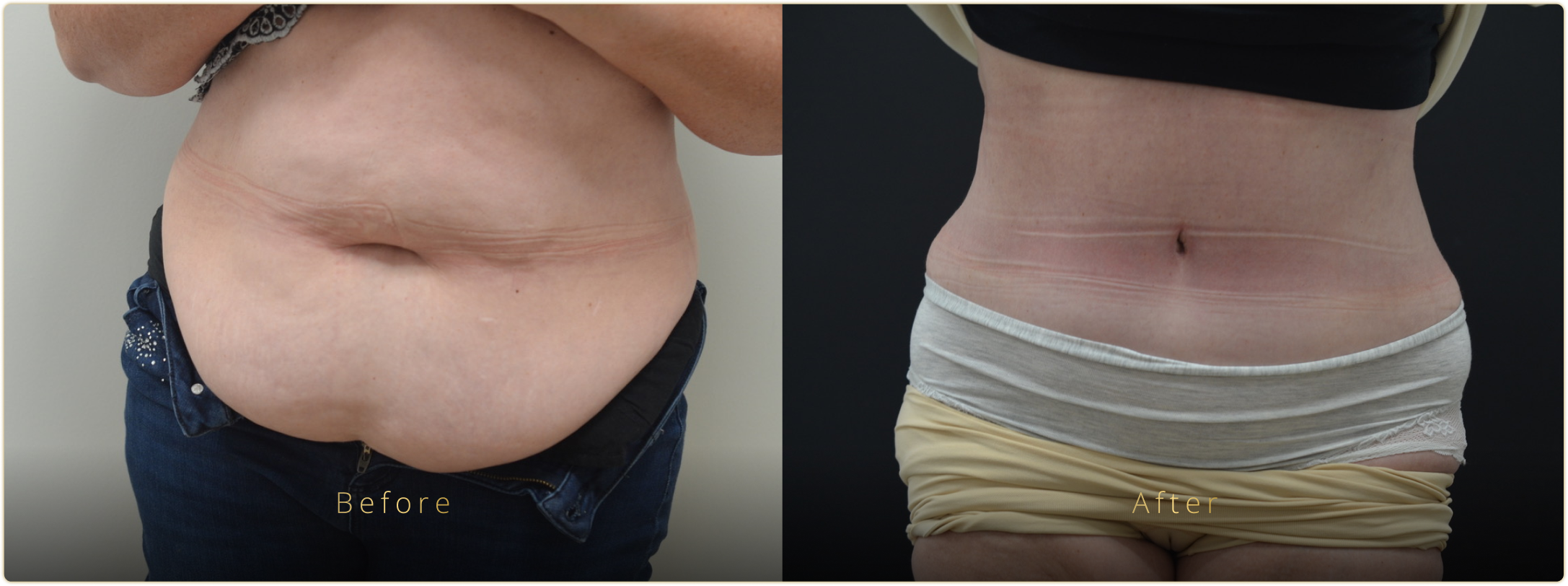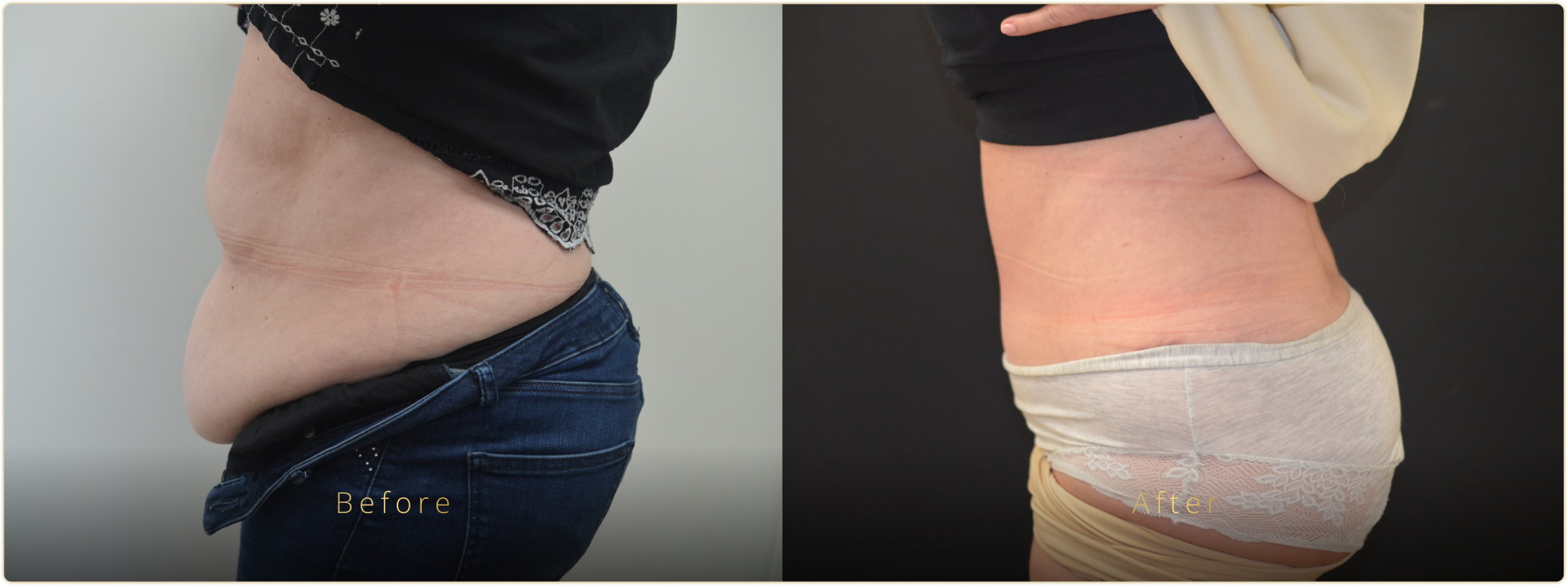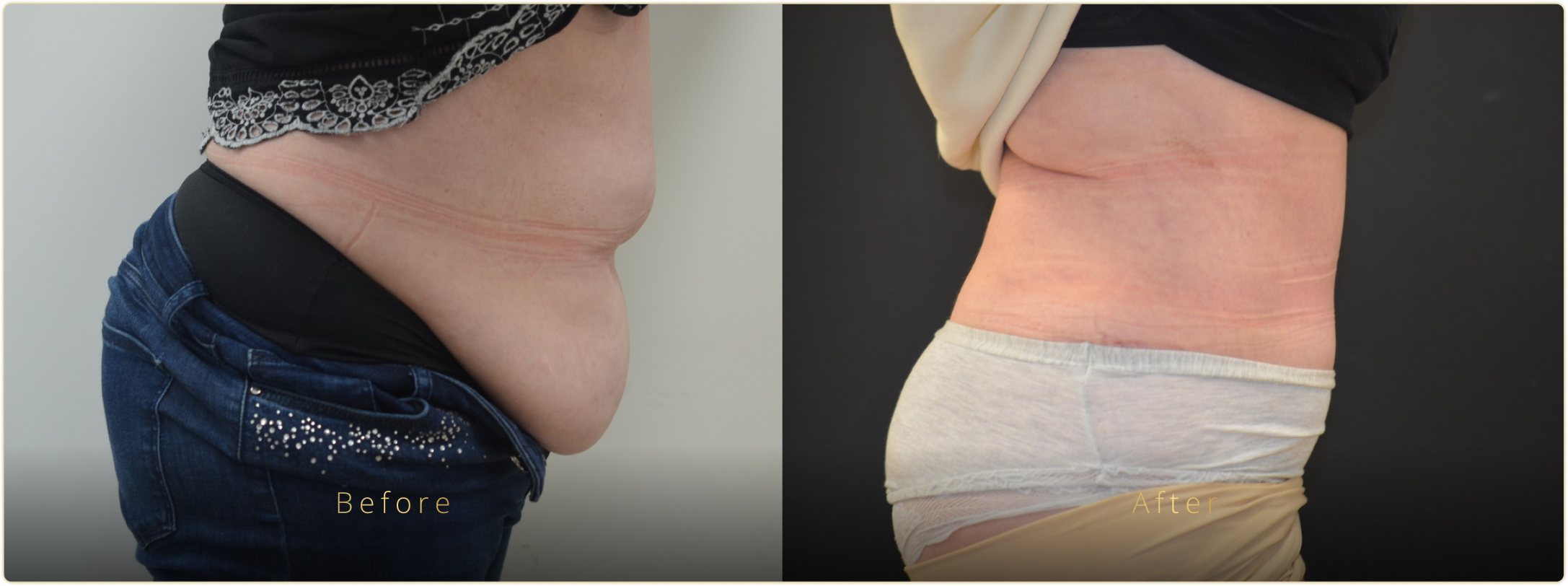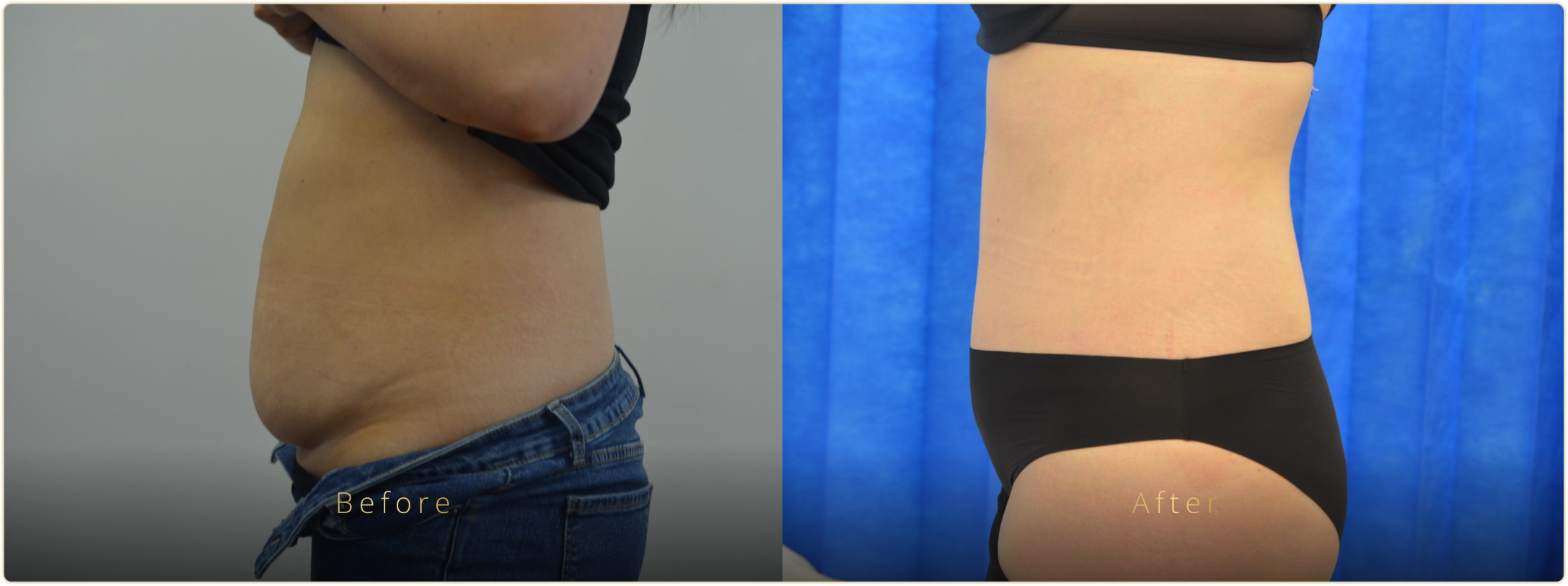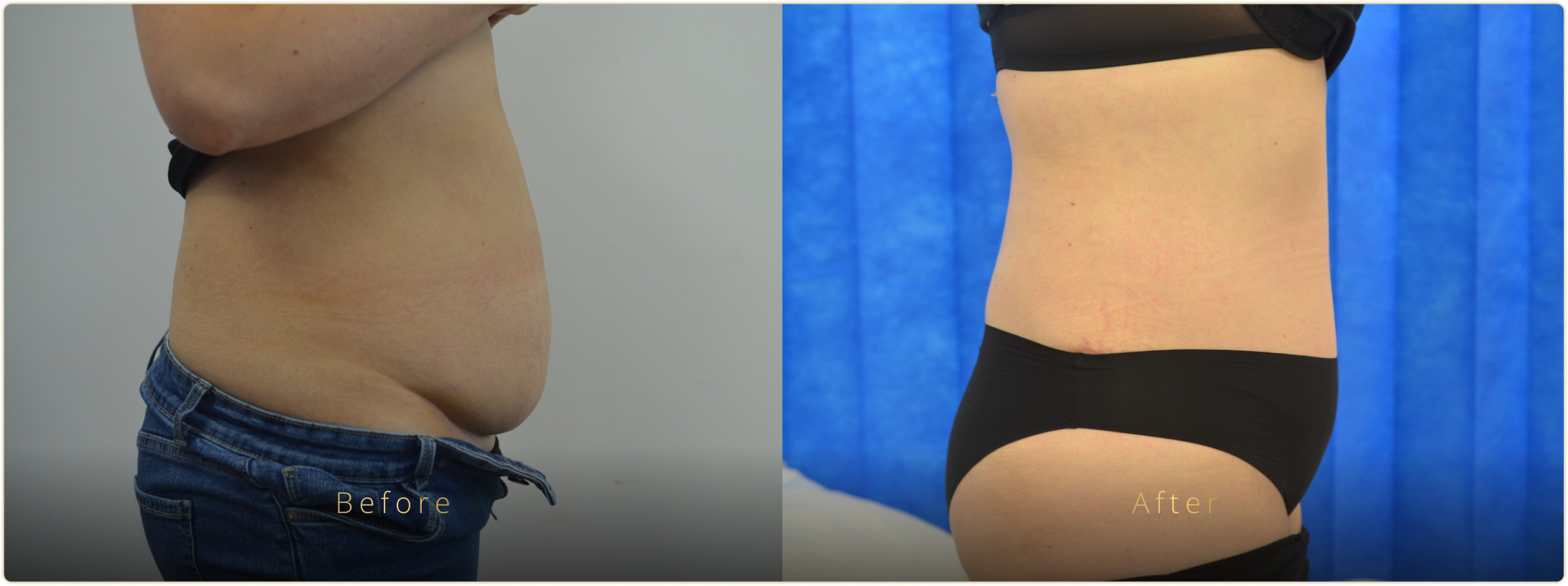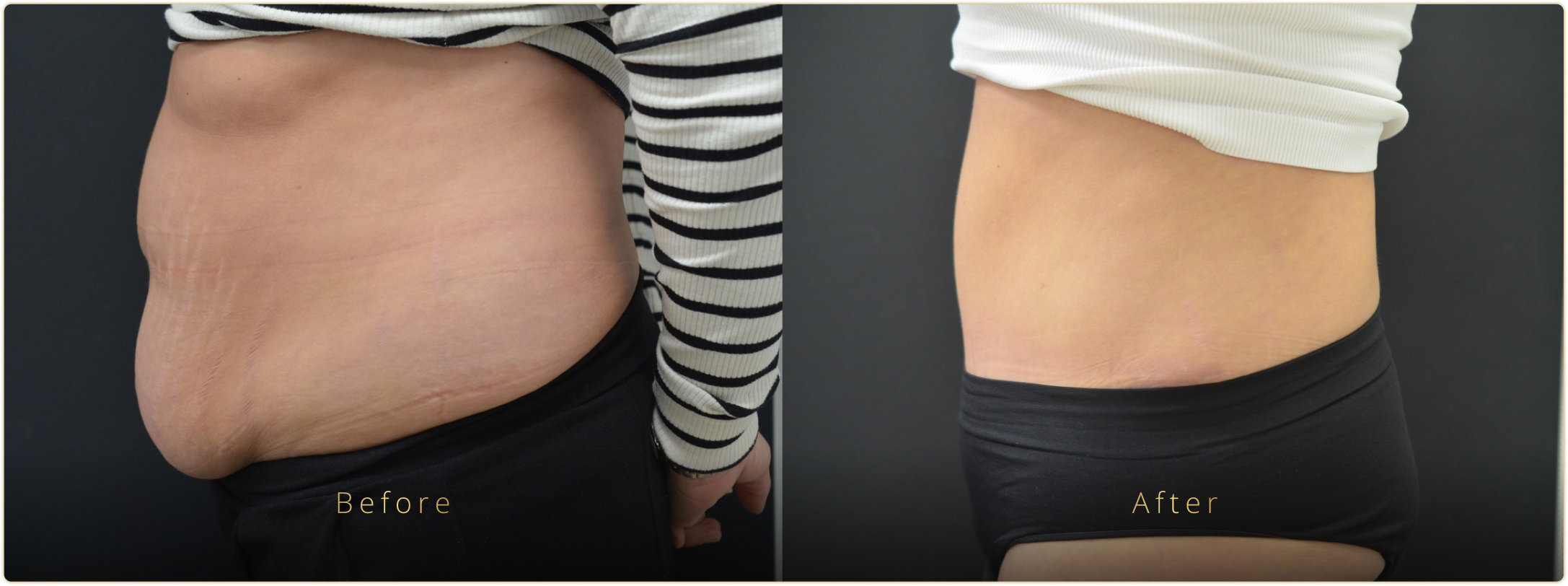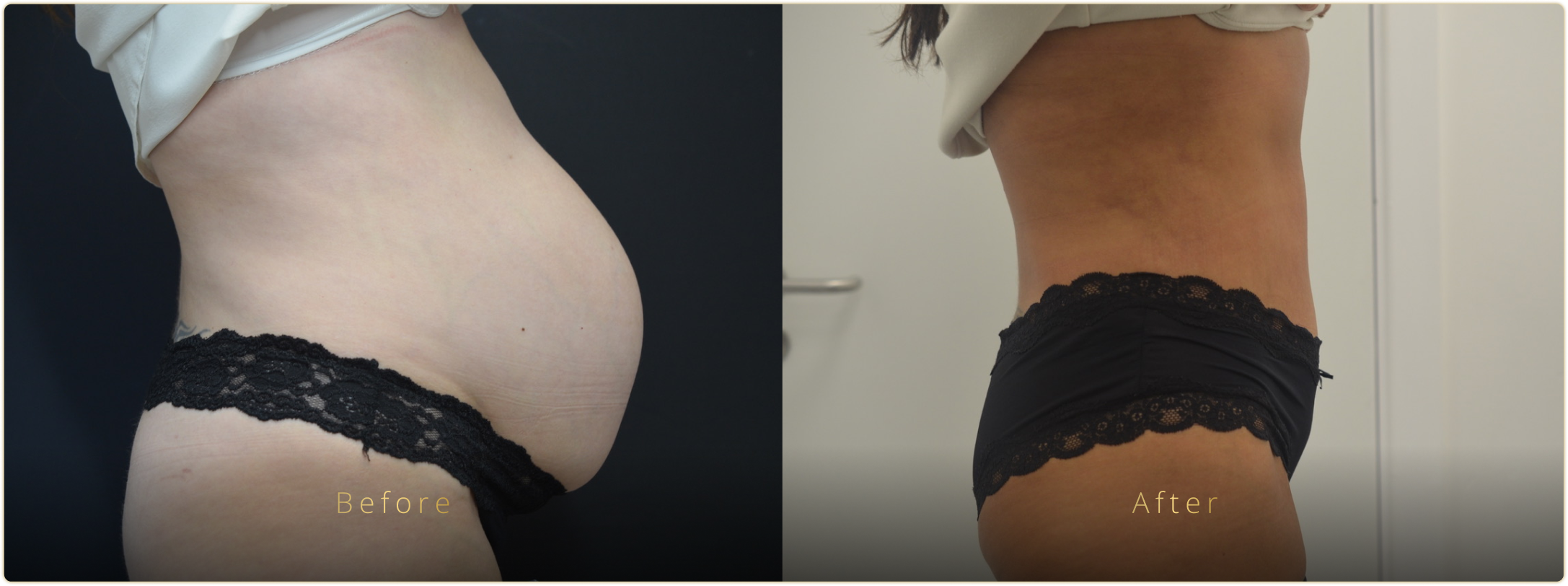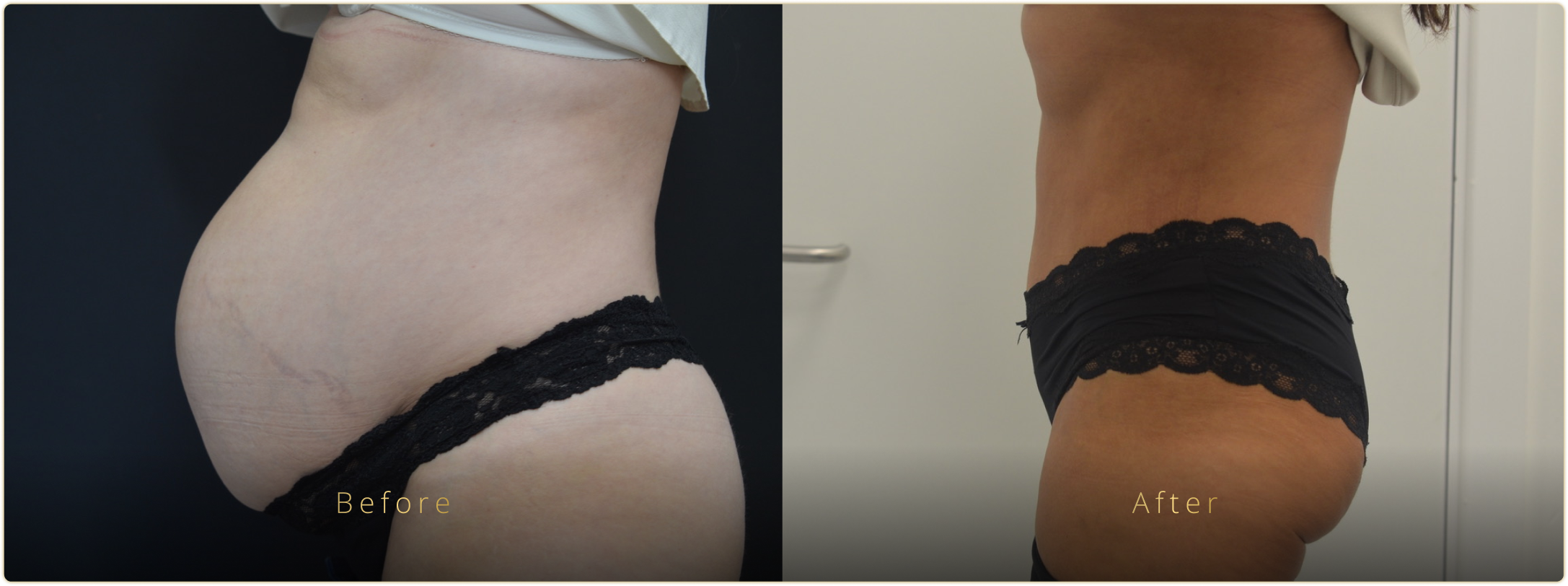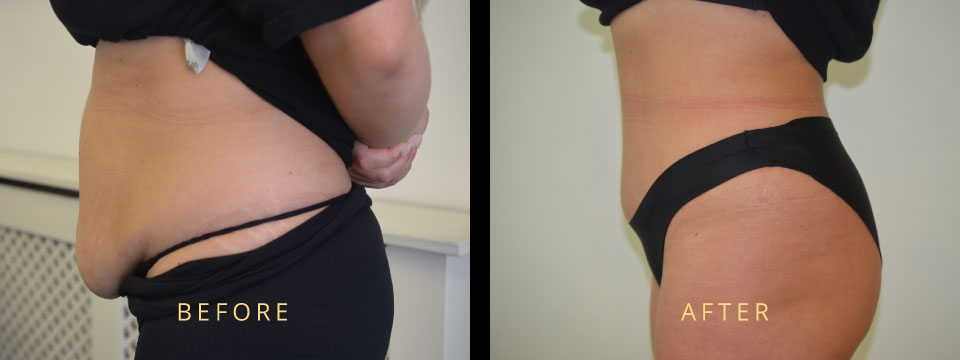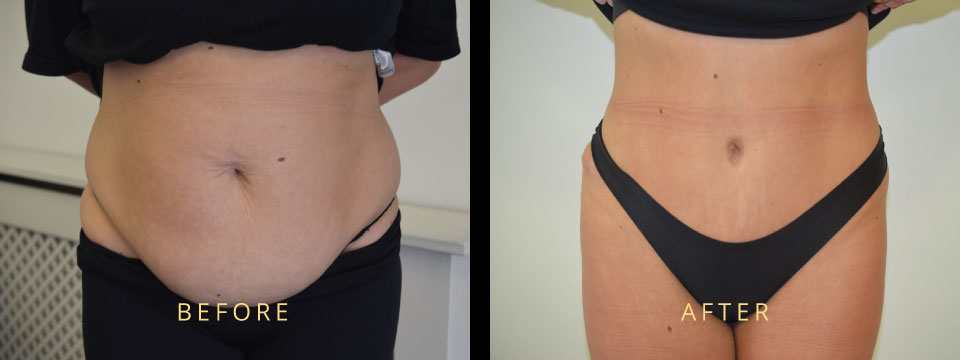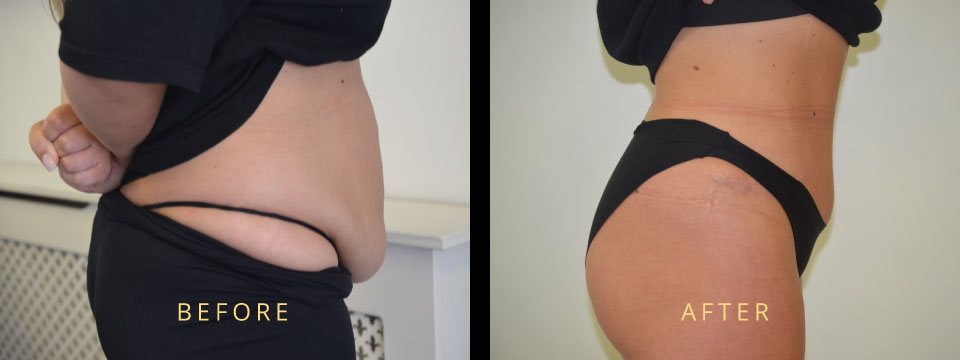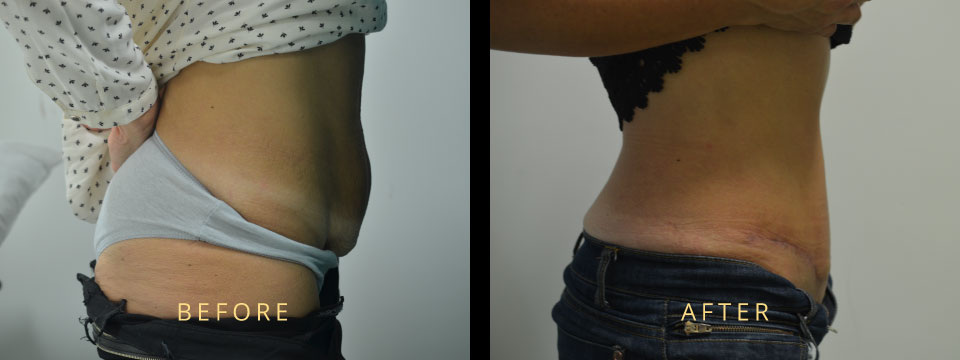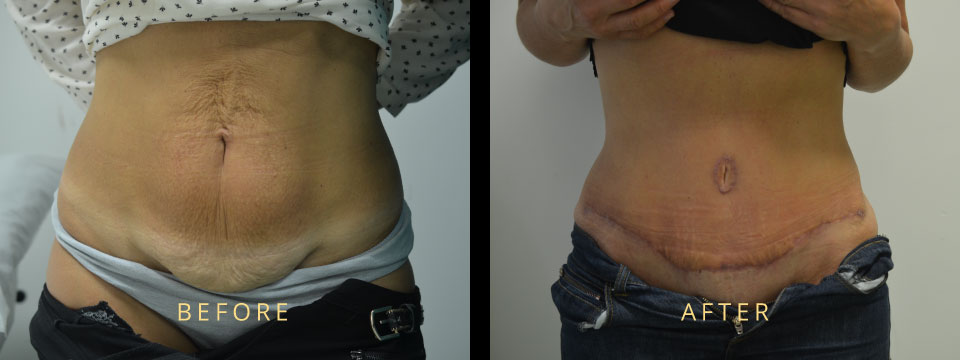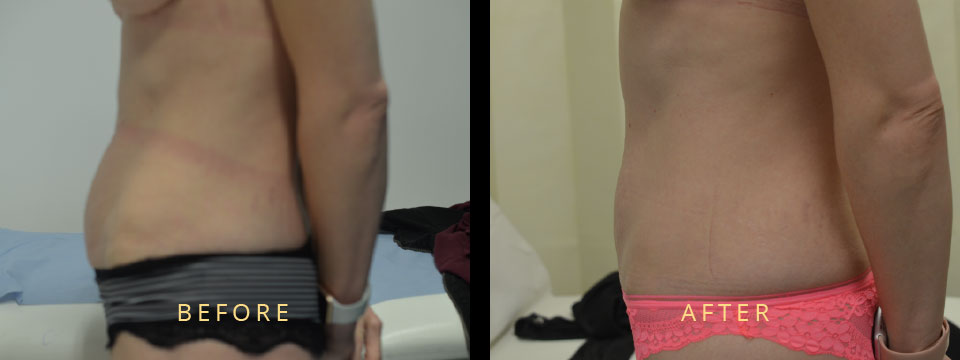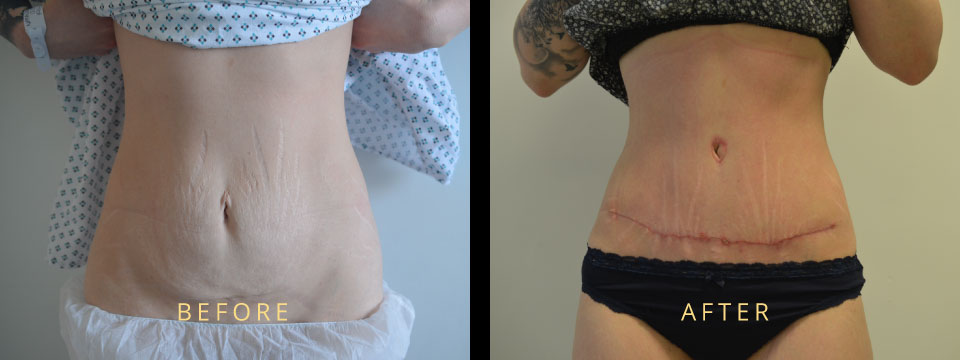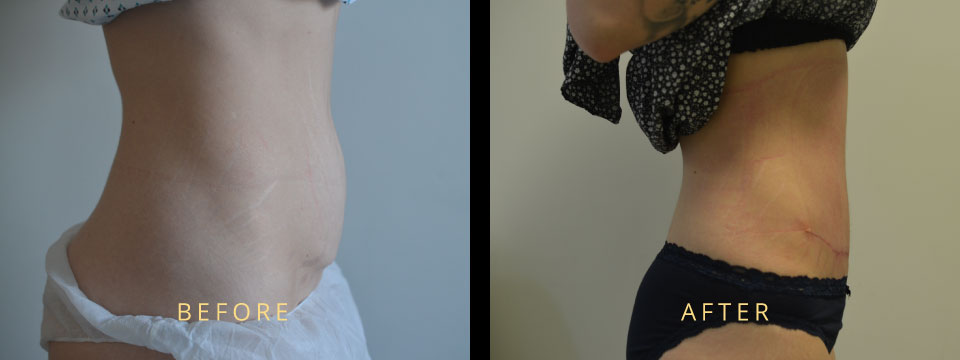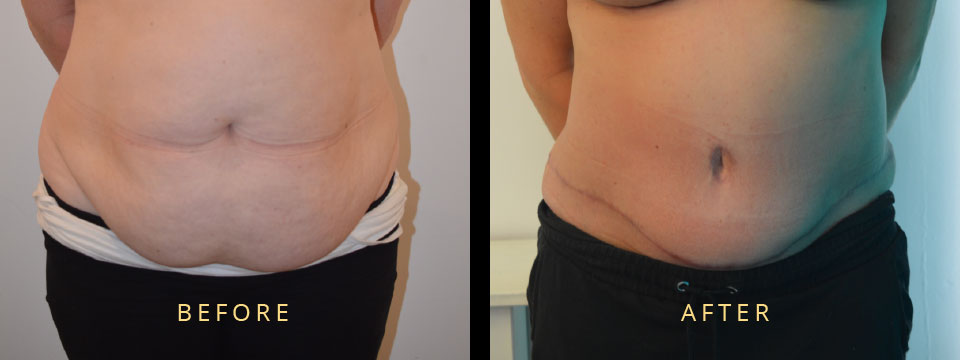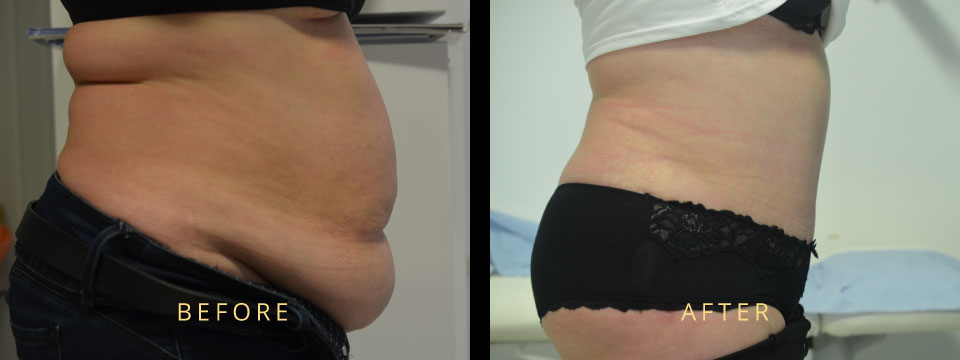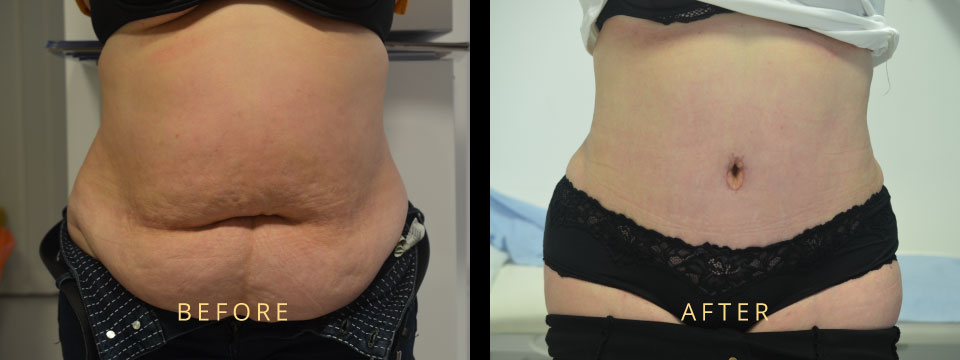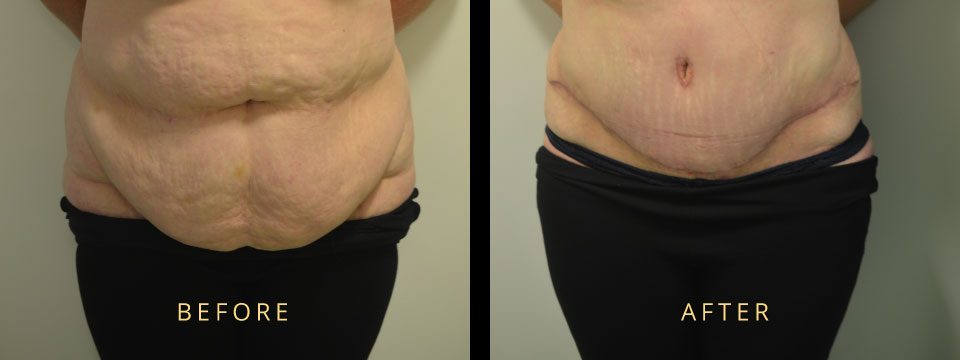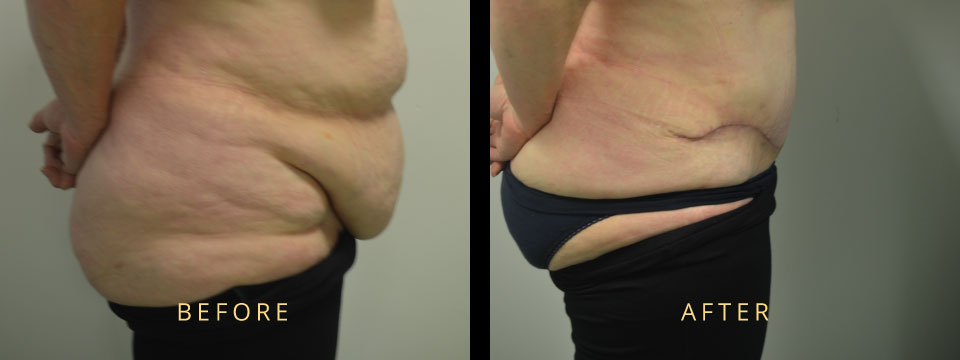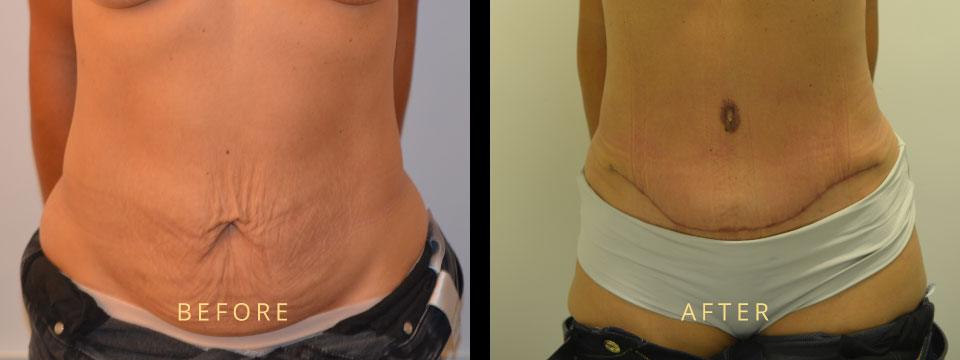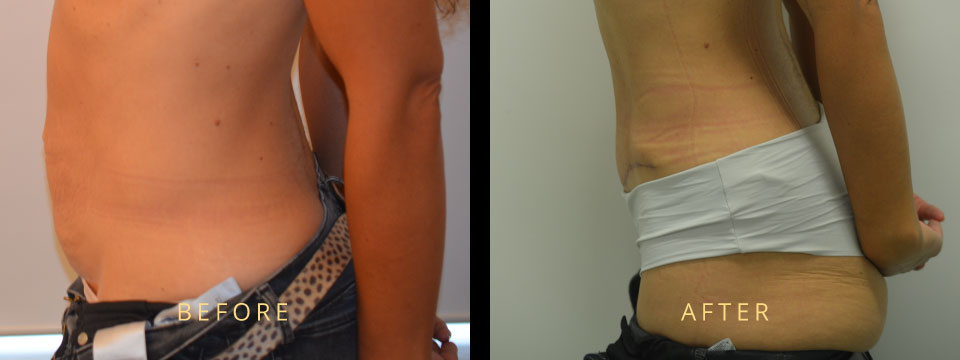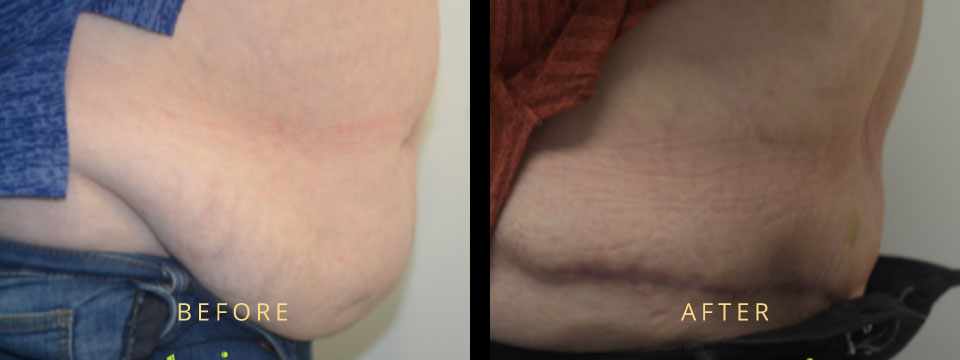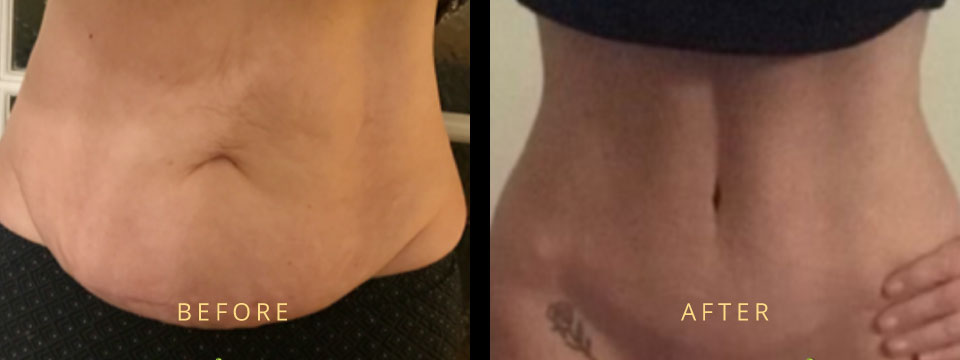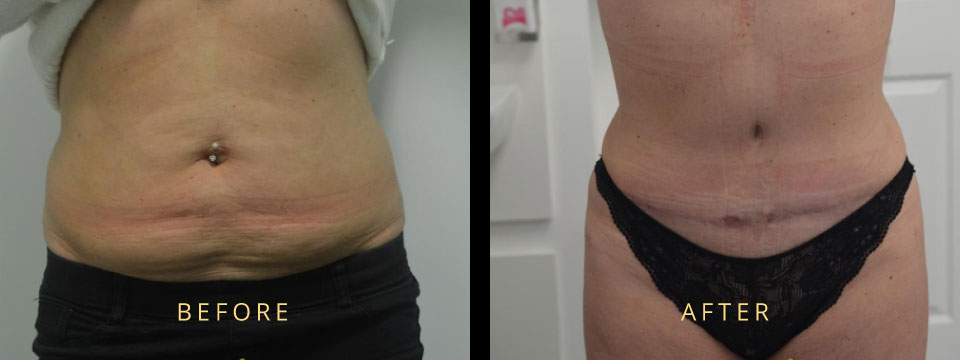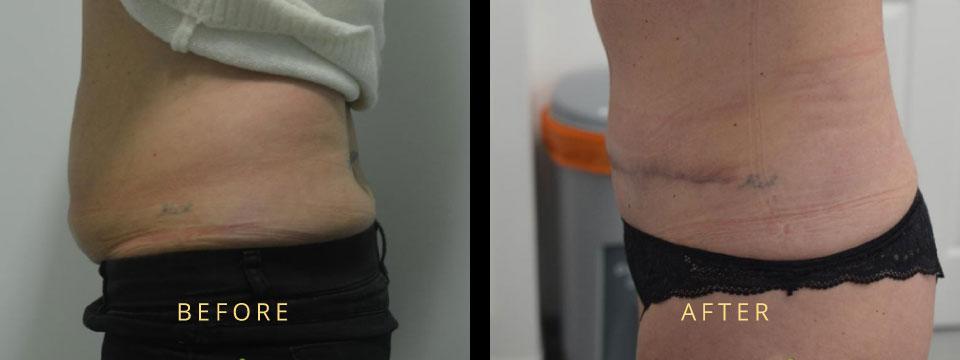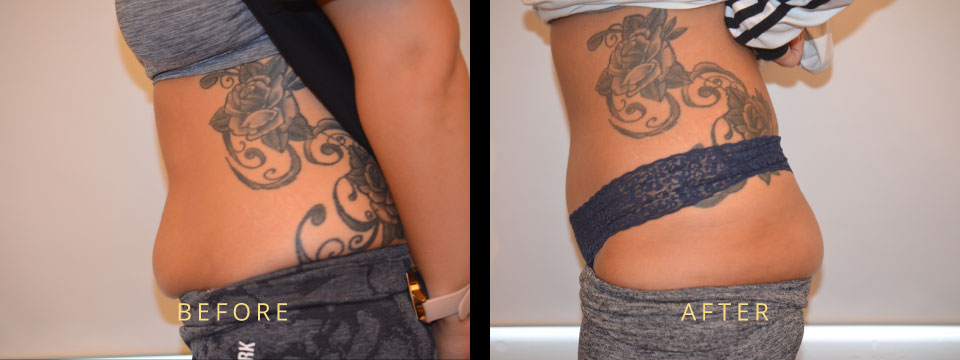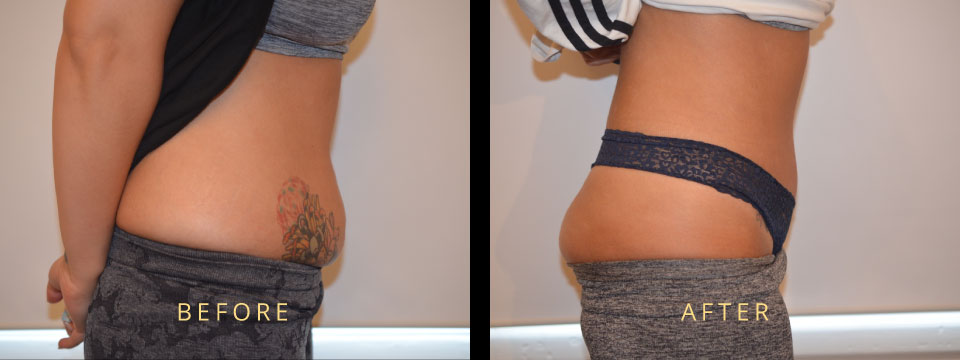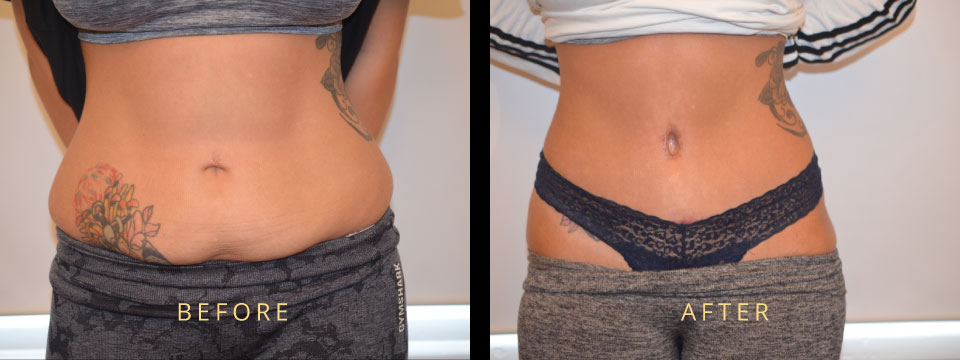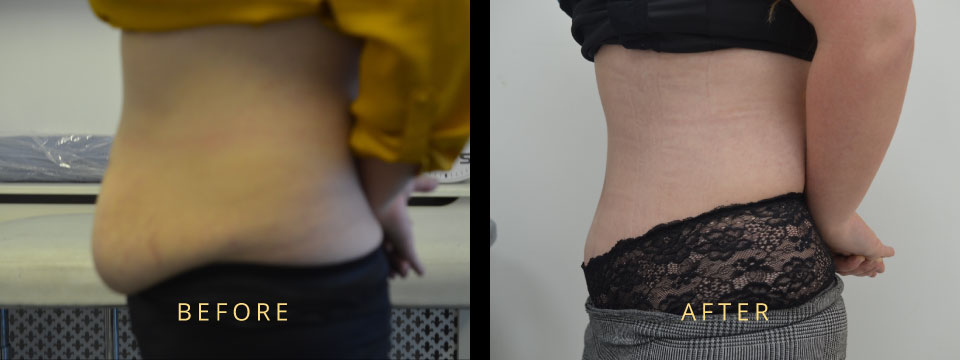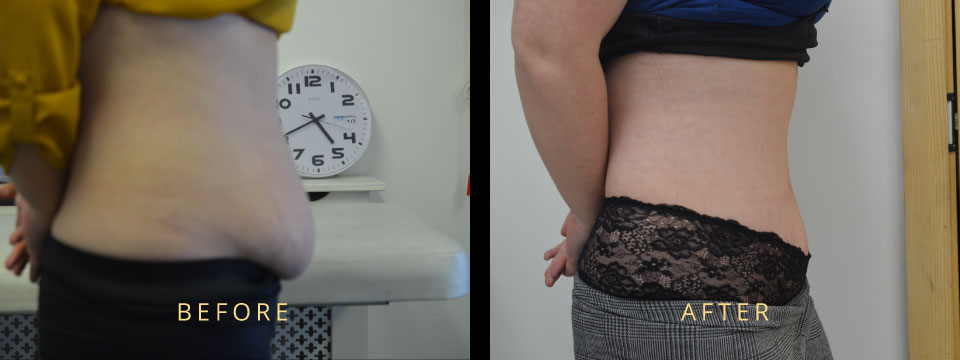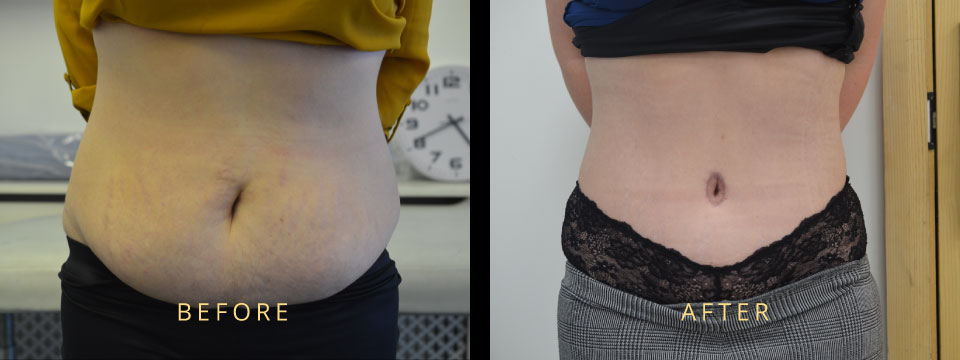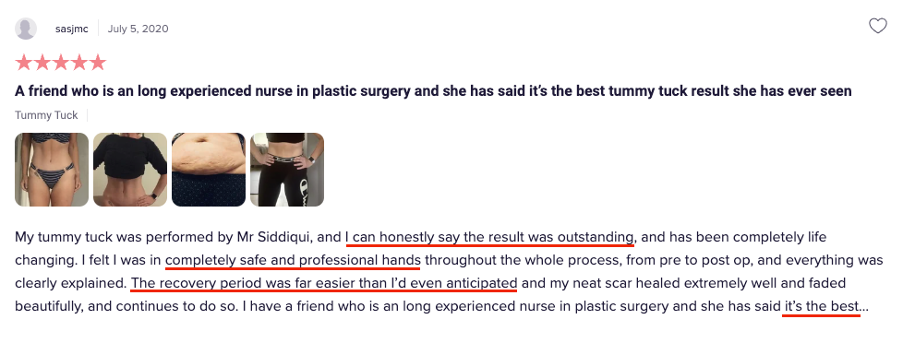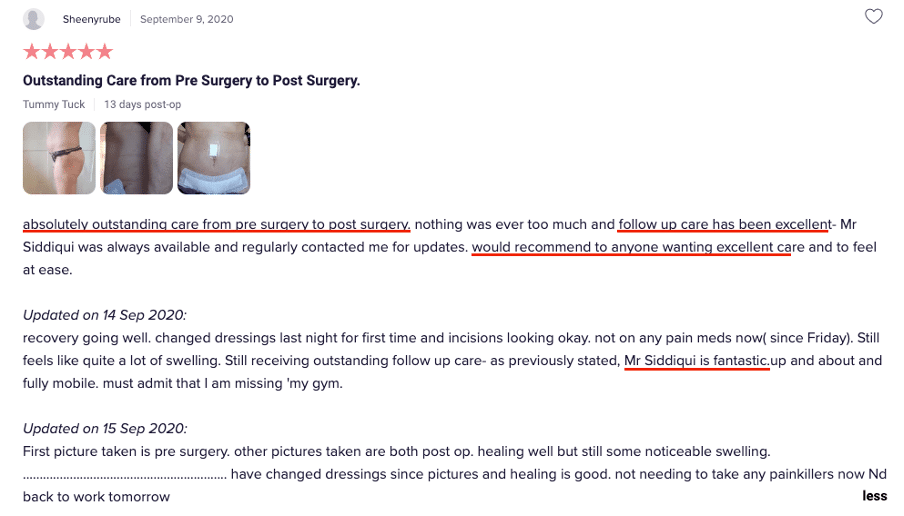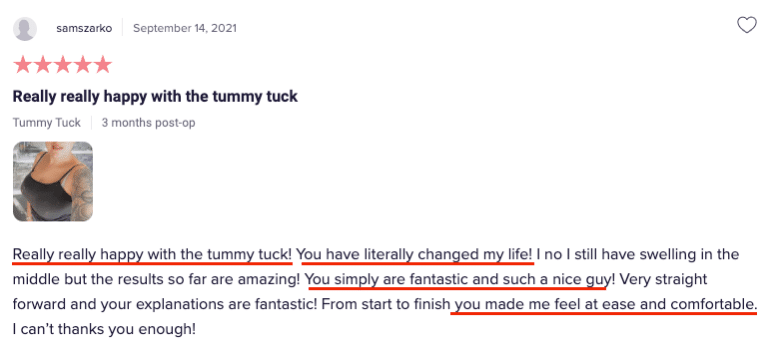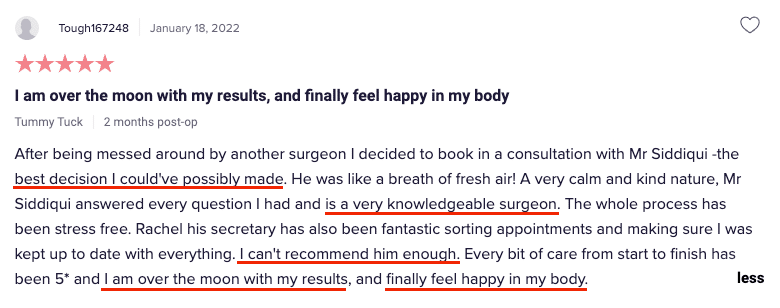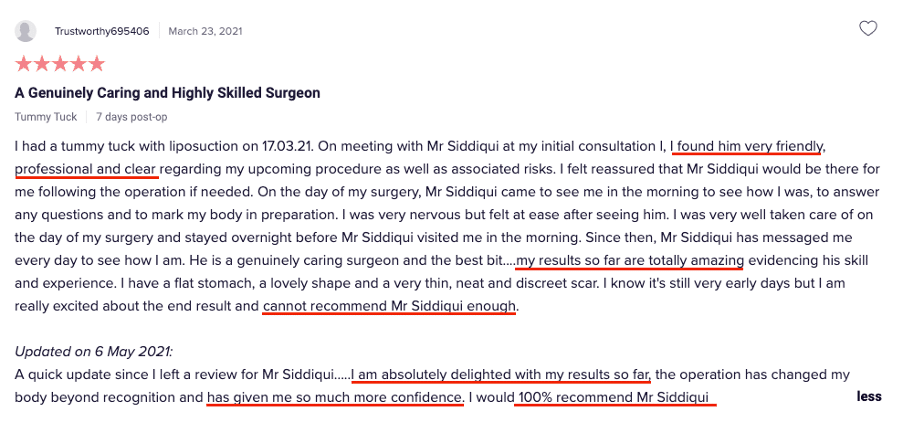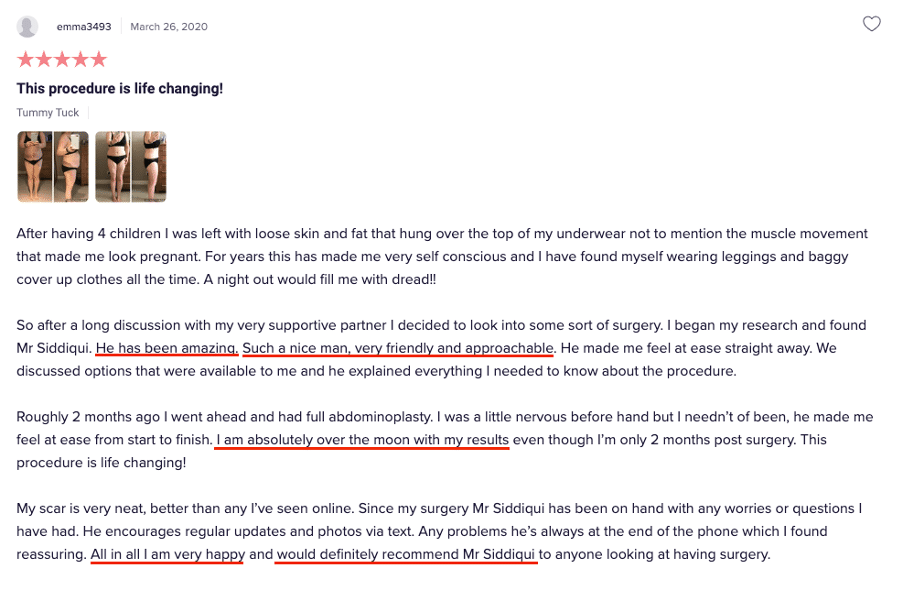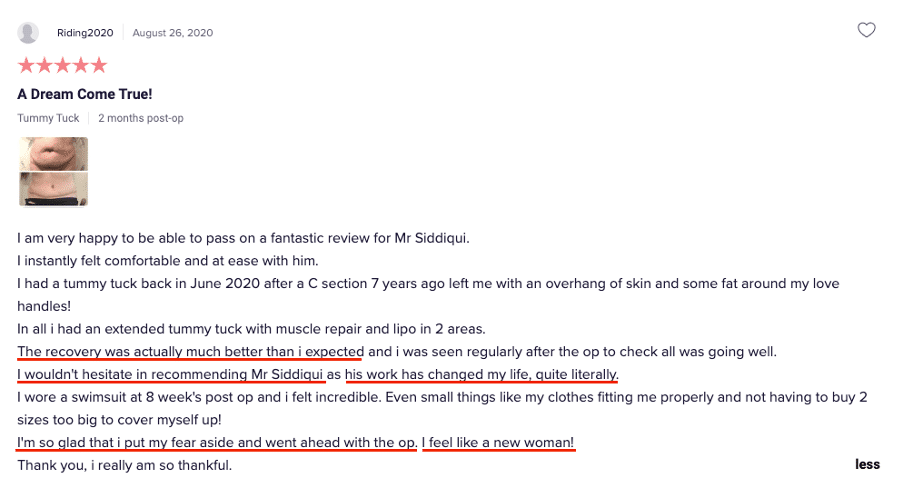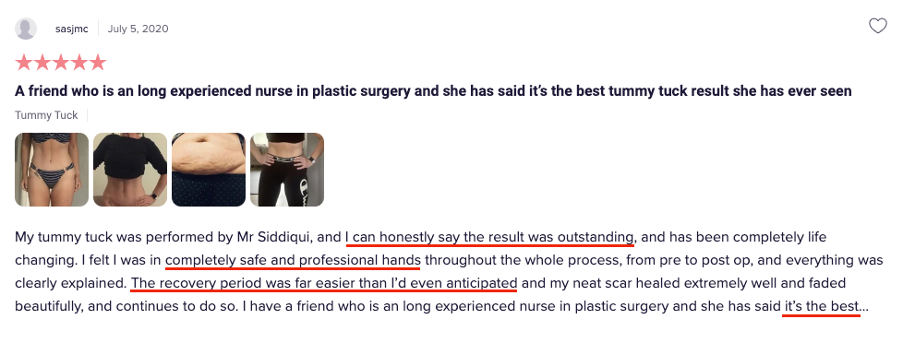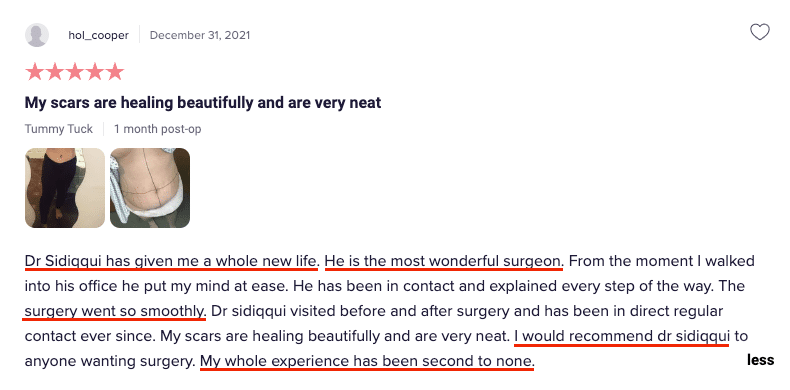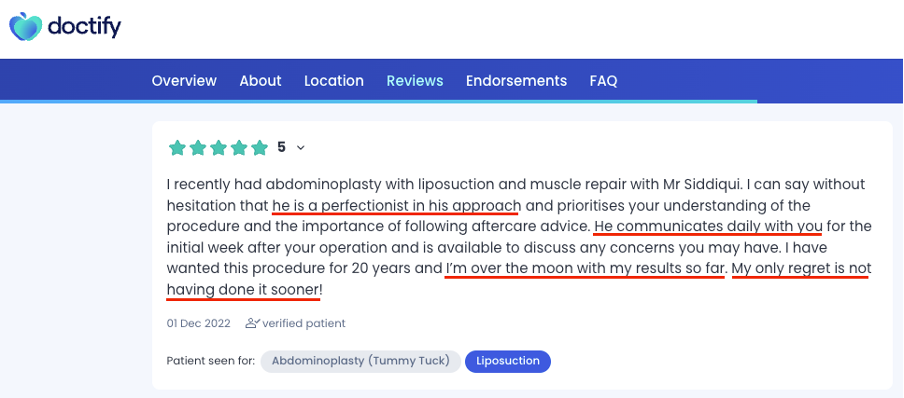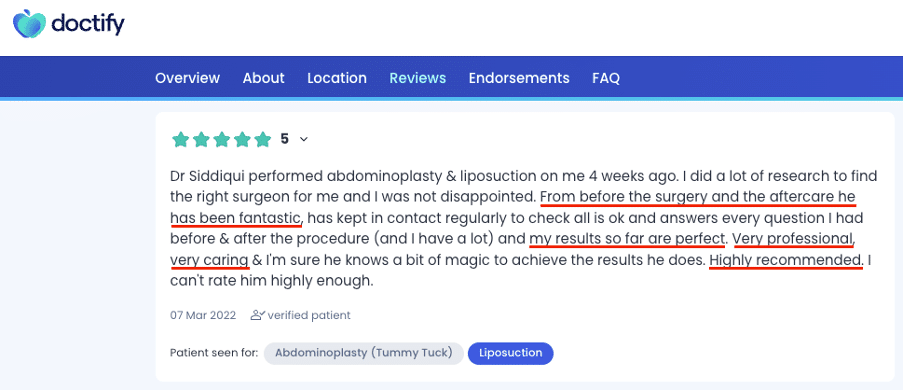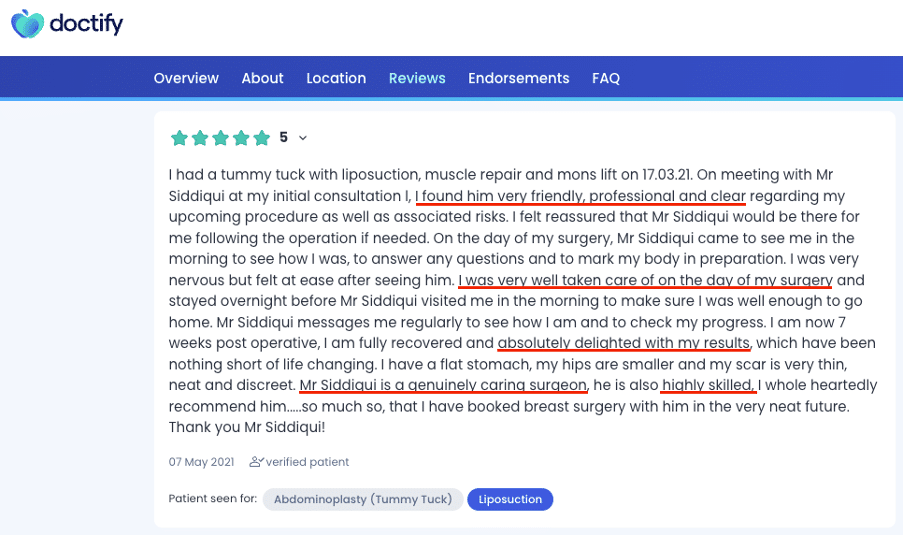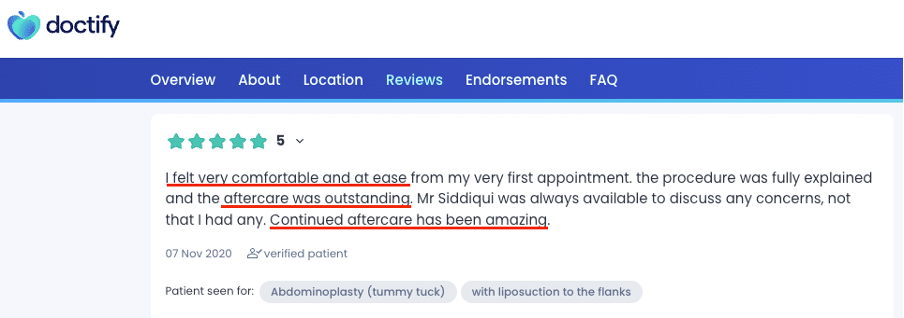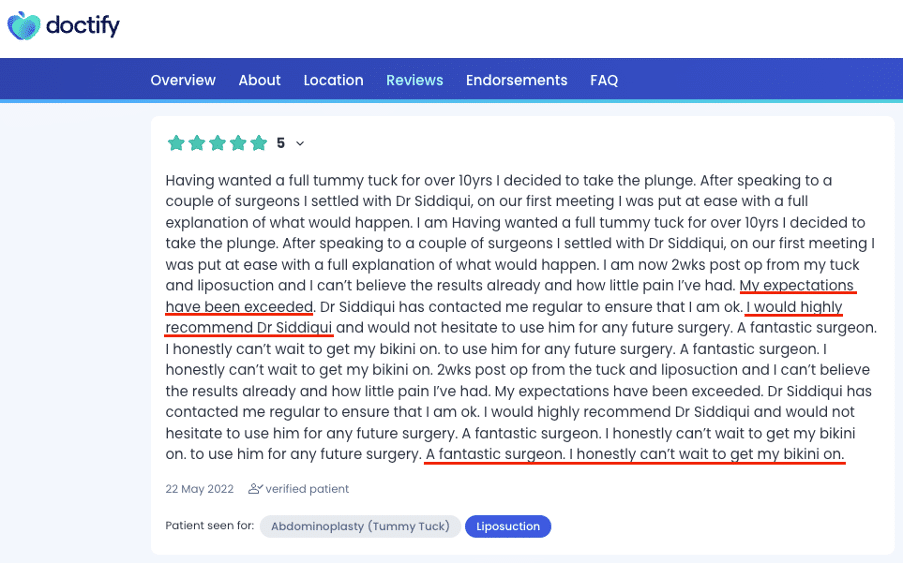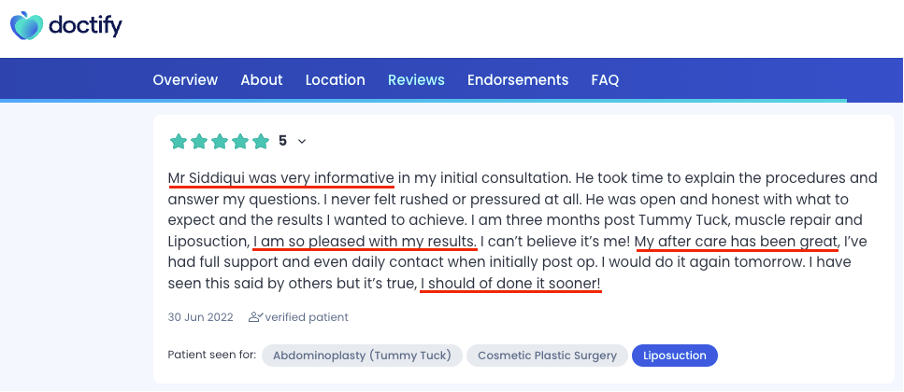BREAST AND BODY CLINIC - DEDICATED
FOCUS IN TUMMY TUCK (ABDOMINOPLASTY)
One of the top 10 Plastic Surgeons in Manchester
Over 9000 procedures performed
First Prize for Best Clinical Design at National Research Collaborative Meeting, London.
Over 22 Years experience in plastic surgery and cosmetic surgery practice in Northwest.

Awarded Certificate of Excellence 2022 by iWantGreatCare

5-Star Verified Doctor on RealSelf with 174 Reviews
An abdominoplasty before and after gallery
Check out our previous patient results
Do these photos remind you of your case?
You can get similar results or better.
Sculpt your dream body with a tummy tuck surgery
An abdominoplasty in the UK can beautifully reshape and refine your silhouette. From stubborn fat to loose skin, this surgical procedure is a powerful solution to remove excess skin and fat. Whether you opt for a mini or full tummy tuck, with or without liposuction, this treatment is designed to transform your abdomen into a more toned, firm, and sleek appearance.
Contact us today and learn more about abdominoplasty surgery.
What is an abdominoplasty?
An abdominoplasty, also known as a tummy tuck, is a surgical procedure that tightens and reshapes your abdominal area. It’s the perfect solution if you’ve struggled with sagging skin or stubborn fat in your tummy region, helping you achieve a flatter and more contoured stomach and abdominal muscles.
Why have a tummy tuck surgery in Manchester?
Excess skin or fat, decreased skin elasticity, and weakened connective tissues can lead to people struggling with attaining a flat or finely-toned abdomen. Contributing factors to this are:
- significant fluctuations in weight
- the effects of pregnancy on the body
- natural ageing processes
individual variations in body type
You may have already tried exercise and dieting and not achieved your desired results, or are struggling to remove the excess fat. A tummy tuck procedure is a great option to help shed that stubborn excess skin and fat for a firm, flat stomach.
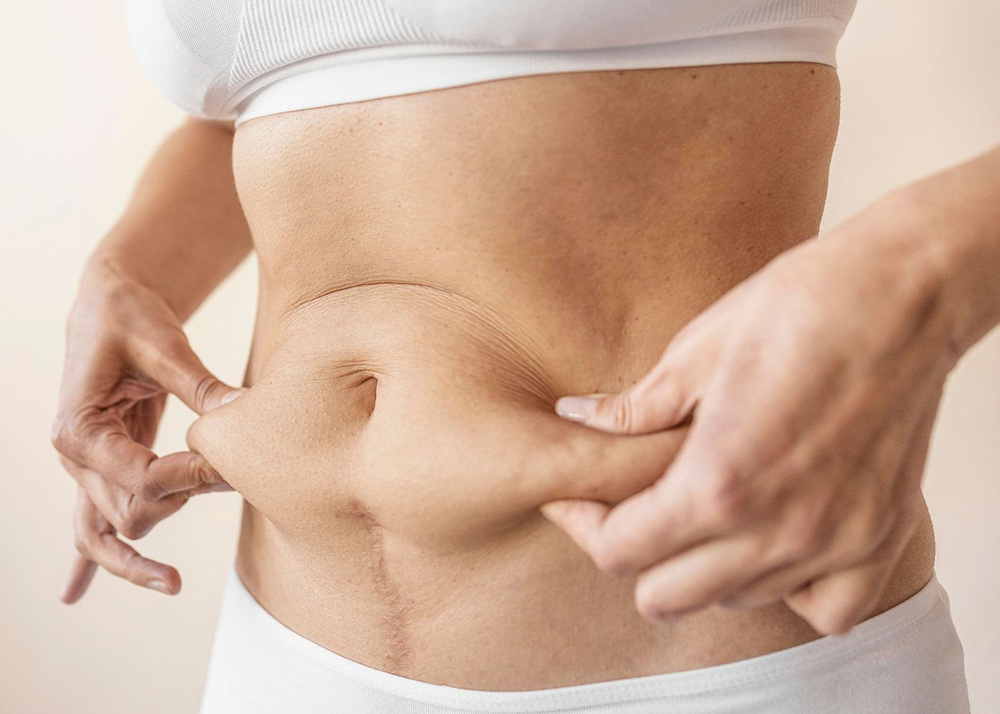
An abdominoplasty in the UK can help to firm and contour your lower abdomen for a trim, toned figure.
What are the benefits of a tummy tuck?
Abdominoplasty surgery has many benefits:
- flatter, firmer abdomen by removing loose skin and stubborn fat deposits
- boosted confidence: achieving the body you desire can greatly enhance your self-esteem and self-confidence
- improved posture: a tummy tuck can help correct abdominal muscle separation potentially improving your posture and reducing discomfort
Wondering if Tummy Tuck is
Right For You? Find Out Today
Am I a good candidate for a tummy tuck procedure?
If you’ve struggled with excess abdominal skin or fat, especially after pregnancy or significant weight loss, you may be an ideal candidate for a tummy tuck. During a consultation, our experts will assess your specific situation to determine if the procedure is suitable for you
It is important to note that tummy tuck procedures are not designed to lose weight or as a weight loss surgery. They are to correct tummy muscles and tighten the remaining skin after pregnancy or losing weight to your optimal BMI.
Choosing the right tummy tuck procedure
At Breast & Body Clinic we offer 3 different types of tummy tuck procedures in Manchester. Your plastic surgeon will discuss the results you want and will determine the appropriate procedure during your initial consultation.
Full abdominoplasty
This option is for patients who need the most correction. The incision (cut) is made at the bikini line and the length of the scar depends on the amount of extra skin. Your surgeon will then manipulate and shape the skin and muscle as needed.
You will also have an incision around your navel (belly button) with this procedure because it is necessary to free your navel from surrounding tissue. Drainage tubes may or may not be placed under your skin. These will be removed in a few days as your surgeon sees fit.
Partial or mini tummy tuck
Partial abdominoplasties are done with shorter incisions and are often performed on people who have less excess skin. Your belly button most likely won’t be moved during this type of procedure. Your skin will be separated between the line of the incision and your belly button. This procedure generally takes one to two hours.
Extended abdominoplasty
This surgery involves the back area. When there is a lot of excess fat in the back as well as the abdomen, you may have either liposuction of the back or circumferential abdominoplasty. The latter procedure allows for the removal of both skin and fat from the hip and back areas, which improves the shape of your body from all sides.
What is the process for having an abdominoplasty in the UK?
An abdominoplasty in the UK involves several stages. The friendly and professional team at Breast and Body Clinic will guide you through every stage.
Consultation and pre-surgery
At your first free tummy tuck consultation, Mr Siddiqui will discuss your goals, medical history and what to expect from the cosmetic surgery. Together, we’ll create a personalised plan tailored to your unique needs.

Breast and Body Clinic is here with you every step of your tummy tuck journey to find your new, trim figure.
Risks and Side Effects of the Fleur de Lis Tummy Tuck
Fleur de Lis abdominoplasty, like all surgical procedures, entails risks and potential adverse effects that should be discussed with a plastic surgeon before the operation. The following are some of the most common Fleur de Lis tummy tuck dangers and side effects:
- Scarring: Scarring is an unavoidable outcome of any surgery, but the vertical incision used in the Fleur de Lis technique may result in more noticeable scars than a typical stomach tuck. Proper care can aid in scar fading.
- Infection: There is always a risk of infection with any surgery. To reduce the risk of infection, patients are typically given antibiotics before and after the procedure.
- Poor Wound Healing: Some individuals may have diabetes, which can cause delayed healing or wound separation, necessitating additional surgery.
- Numbness or Sensitivity: Fleur de Lis belly tucks may cause abdominal numbness or sensitivity, which is usually temporary and resolves on its own.
- Blood Clots: As with any surgery, a Fleur de Lis belly tuck can result in blood clots. Patients are encouraged to move around as much as possible following the procedure to reduce the risk of blood clots. This may be uncomfortable and may require additional therapy.
- Anaesthesia Risks: As with most surgical procedures, the use of general anaesthesia in a Fleur de Lis abdominoplasty carries some inherent risks, including the possibility of adverse reactions to anaesthesia. Additionally, there is a small risk of developing deep vein thrombosis, which is the formation of blood clots in the deep veins of the legs.
The incidence of risks and complications associated with Fleur de Lis abdominoplasty is generally low, and the majority of patients recover well. However, to ensure full awareness of potential dangers and side effects, patients should discuss these concerns with their plastic surgeon before undergoing the procedure.
Preparing for abdominoplasty is crucial for a successful cosmetic surgery procedure. Your doctor will provide a set of guidelines, including:
- maintaining a healthy diet
- monitoring your health
- quit smoking and alcohol for at least a week prior
- avoiding herbal medication
and discontinuing anti-inflammatory medications like aspirin, ibuprofen or similar drugs
Additionally, striving for a stable and healthy weight before the procedure is essential.
The procedure
An abdominoplasty in the UK can last anywhere between 1 to 5 hours, depending upon what type of tummy tuck surgery you have:
- a mini tummy tuck (mini abdominoplasty)
- a full tummy tuck (full abdominoplasty)
- an extended tummy tuck
- a fleur de lis tummy tuck
You will be given a general anaesthetic before your surgeon commences your abdominoplasty procedure. Your surgeon will create careful incisions, before removing excess skin and fat. Your abdominal wall muscles can be repaired before creating a new opening for your belly button and the remaining skin is meticulously sutured together.
Recovery and after-care
Once the numbness wears off after the cosmetic surgery, you may start feeling some pain. This can include sensations of tightness, tenderness, and discomfort in the surgical and belly button area, and within your muscles that have been repaired.
The first week after the surgery you may feel the most pain and soreness. You can take pain-relieving medications to help. This discomfort, pain and swelling decrease over the week.
If you had a mini tummy tuck, you should expect most of this pain and discomfort to subside by the end of the second week following your procedure. However, for a full abdominoplasty or standard tummy tuck, you might still experience some mild to moderate discomfort and tenderness in your abdomen during the second week.
Wondering if Tummy Tuck is
Right For You? Find Out Today
Are there risks or complications with having an abdominoplasty in the UK?
Like any surgical procedure, there are potential risks and complications associated with tummy tuck operations:
- bleeding
- infection
- blood clots in your leg or lungs
- poor wound healing
- scarring
How much does a tummy tuck cost in Manchester?
The price of abdominoplasty surgery can vary, influenced by factors like the surgeon’s experience, the geographical area, and your specific medical needs. In the UK, the typical cost for a tummy tuck ranges from approximately £4,500 to £6,000, and this may include expenses for consultations and post-operative care*.
During your initial consultation, you will receive a comprehensive breakdown of the total cost tailored to your unique situation.

Surgical
Fee
Includes the surgeon’s fee as well as compression garments (if applicable) and all post-operative appointments. In the unlikely event of an emergency situation or complications the additional services and supplies required are included in the surgical fee as well.
Anaesthetist
Fee
Anaesthetists’ services and expenses are in addition to the surgical fee.

Theatre and
Hospital Stay
The charge for your stay will depend on how many nights you are required to stay (some procedures only require you to remain at the hospital for the day). Costs will also encompass any specific requirements in regards to diet or special assistance that may be required for wheelchair access or allergies.
Why choose Breast & Body Clinic for your abdominoplasty in the UK?
At Breast & Body Clinic, we are dedicated to your well-being and satisfaction. Our renowned surgeon, Mr Siddiqui, specialises in tummy tuck procedures and is committed to providing exceptional results. With a focus on personalised care and safety, our clinic is your trusted partner in achieving your dream figure.

Meet Mr Siddiqui
MBBS (Hons), MRCS Ed, M.Ch, FRCS (Plastic Surgery) Consultant Plastic and Cosmetic Surgeon CHESTER | MANCHESTER
Mr Siddiqui holds the position of Consultant Plastic Surgeon at The Countess of Chester Hospital, where he is a valuable member of the Plastic and Reconstructive Surgery Department. He is widely recognised as one of Manchester’s foremost cosmetic surgeons, consistently ranking among the top 10 in his field.
Having completed comprehensive training in plastic surgery, he later took on the role of an NHS Consultant and has since expanded his expertise to create a private practice serving the communities of Manchester, Chester, and Preston.
How to book your consultation for an abdominoplasty in the UK
Ready to redefine your figure with a tummy tuck?
- Fill out our online booking form
- Call us: 07787 331122
- Email us: info@breastandbody.co.uk
FAQs
How long does it take to recover from an abdominoplasty?
Recovery time after abdominoplasty varies, depending on what type you have (mini, standard or full). Most patients should expect several weeks for initial healing.
Can you get an abdominoplasty in the UK on the NHS?
Tummy tucks are typically not available on the NHS as they are considered to be cosmetic procedures. It is important to be aware it is a major surgery and to know all the costs that are involved.
What can an abdominoplasty, or tummy tuck achieve?
Abdominoplasty can remove excess loose skin and repair stomach muscles to achieve a flatter, firmer abdomen. It can also decrease the appearance of stretch marks for smoother skin.
How long will the results last?
Tummy tuck results can be long-lasting with a healthy lifestyle and avoiding excessive weight gain.
Patient Informed Consent
*Medic First Limited trading as Breast and Body Clinic is an Appointed Representative of Chrysalis Finance Limited, which is authorised and regulated by the Financial Conduct Authority. Medic First Limited is a credit broker not a lender.
Ask Us a Question
Any questions or looking for a consultation? Simply fill in the form below and
we will get back to you promptly with a reply. We are always here for you!

